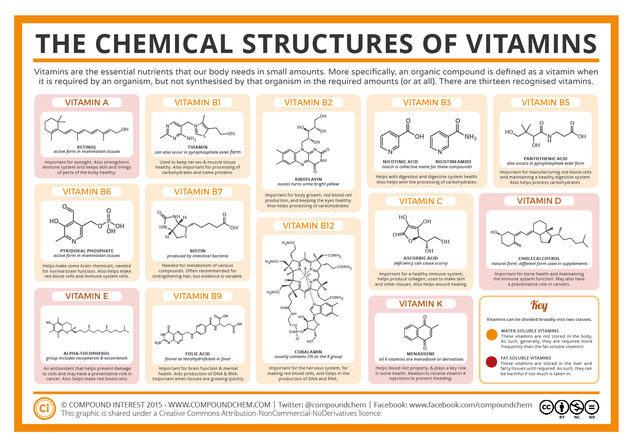Currently, there are 13 recognised vitamins: vitamins A to E, including a range of B vitamins, and vitamin K. Generally, we can stick all of the vitamins into two broad categories. The fat soluble vitamins, vitamins A, D E, and K, can be stored by our bodies in the liver or in fatty tissues. They are stored until they’re required, which consequently means they generally don’t need to be ingested as frequently. Water soluble vitamins, on the other hand, are not stored in the body. As such, they must be a regular part of the diet in order to avoid deficiency. Conversely, the fact that water soluble vitamins aren’t stored in the body makes it harder to overdose on them, which can also have detrimental effects.







